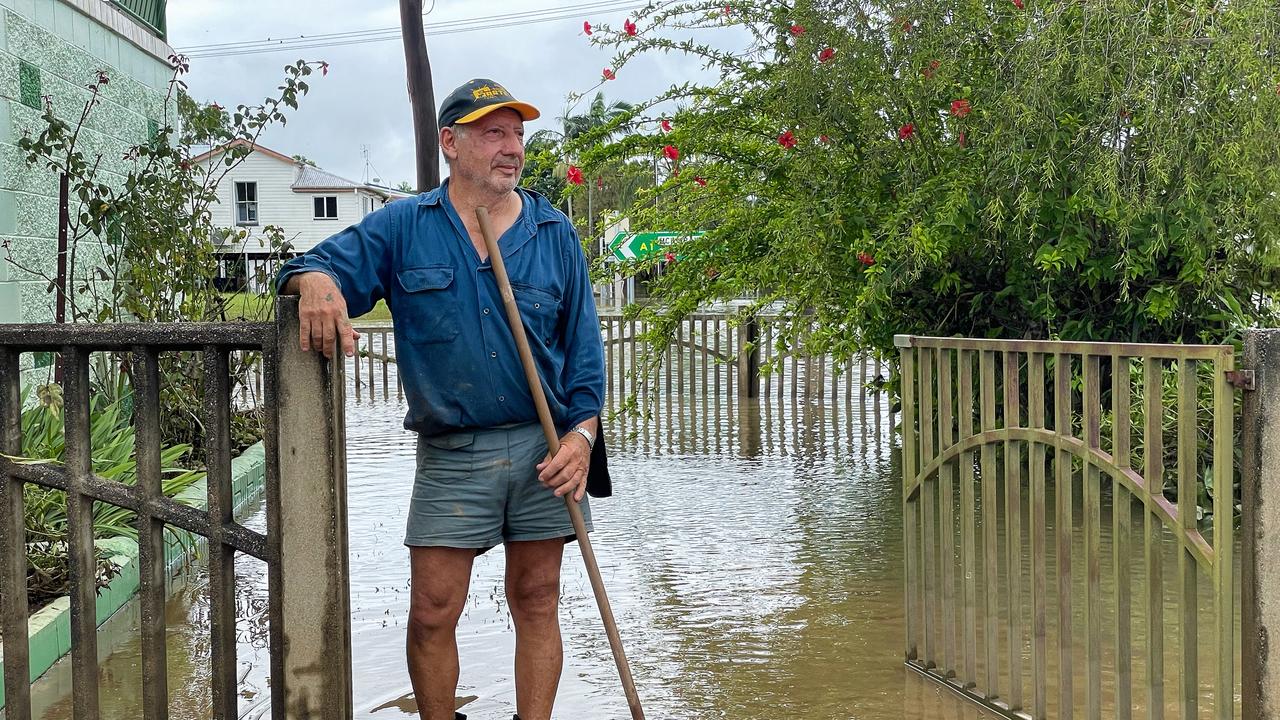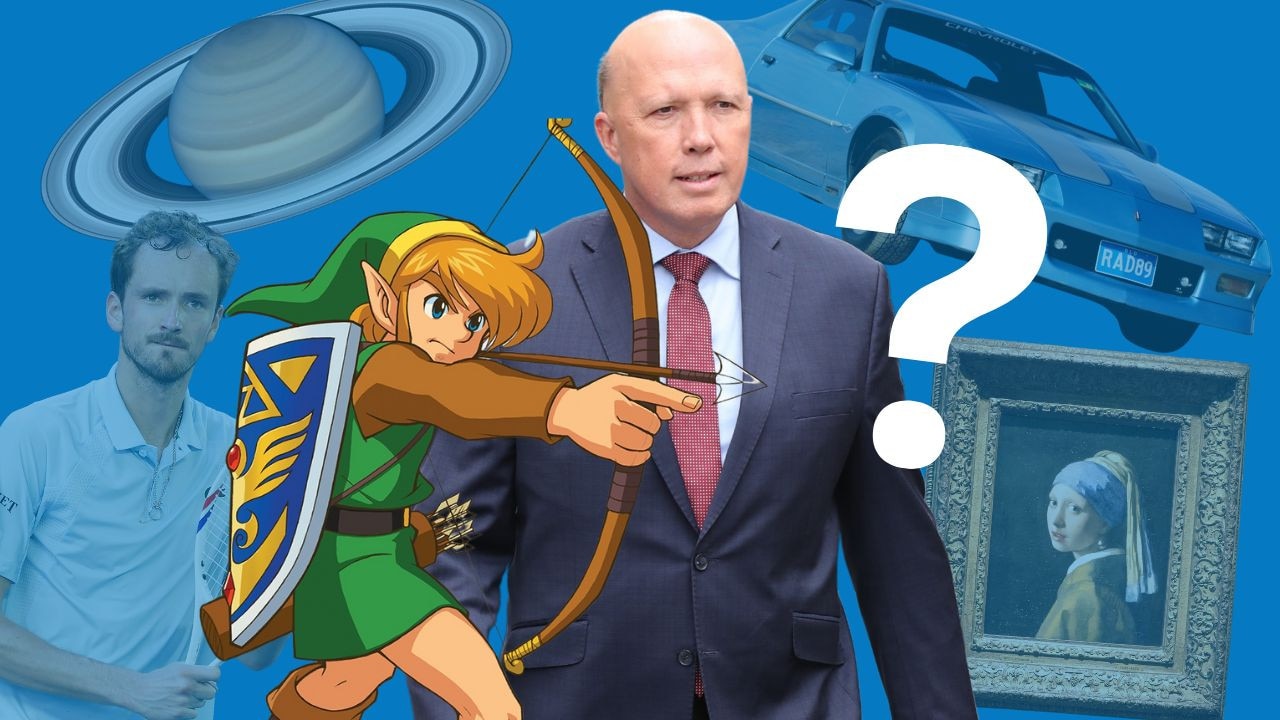‘Day of mourning’: First Nations men share views on changing the date
Changing the date is a debate that has divided the nation and now two First Nations men have shared their views on January 26.
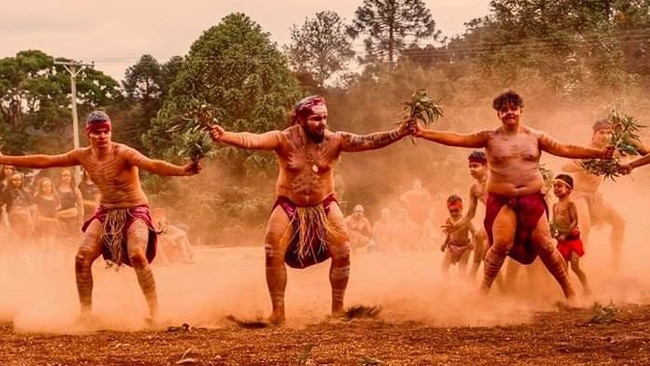
News
Don't miss out on the headlines from News. Followed categories will be added to My News.
OPINION: We truly are the lucky country and have so much to be grateful for, but we should never consider ourselves to be free from critique or improvement.
The Aussie battler spirit means we should also push for a more equitable and fair society for all Australians.
Gratitude for the country we call home is something I have always felt.
Whether it’s a day spent at the beach feeling the sand between my toes or exploring the stunning views from Picnic Point, freedom is something I’ve always had access to.
Sadly, I’m well aware this has not always been the case for the traditional owners of this land or the people who have fled their own countries to now call Australia home.
This notion only became more paramount when I sat down and spoke with just some of the inspiring people I share this amazing community with.
As a non-Indigenous Australian, my views on whether or not to change the date don’t matter, but the time has come to listen to the people’s voices that do matter on this divisive issue.
It’s time to pay First Nations People the respect they did not receive so many years ago.
It’s a strange concept to gather around a barbecue and celebrate the incredible opportunities and freedoms this country offers on a day that is filled with trauma for others.
Now is the time for us to unite as a nation and listen to the people we as a society silenced for so long.
The incredible multicultural community of Toowoomba has embraced so many wonderful people from all over the globe, all with different stories.
I believe it’s an honour to welcome so many more as Australian citizens today.
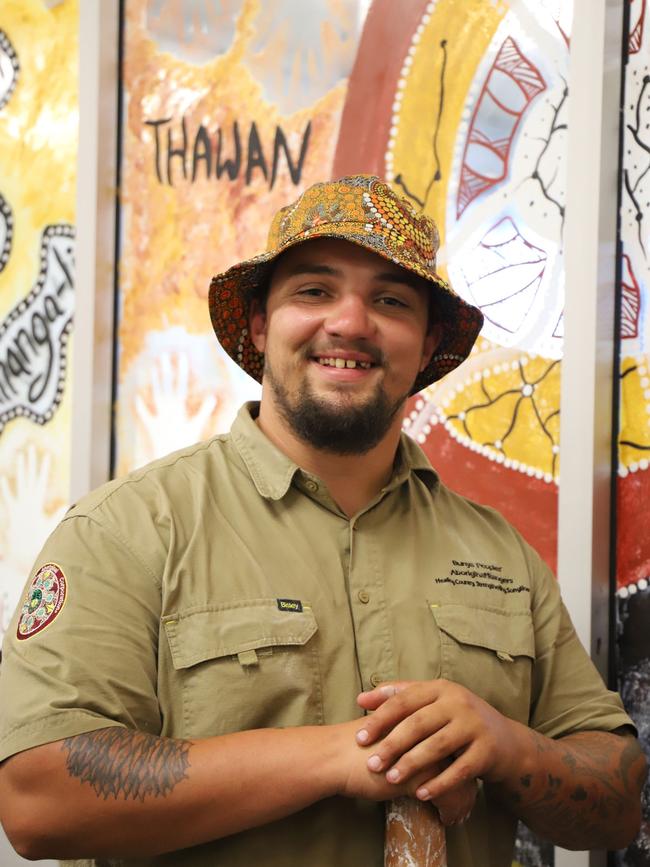
Damon Miri Anderson
For many of Damon Miri Anderson’s fellow First Nations People, today is a day of mourning and one that symbolises the beginning of oppression and loss of culture.
It’s a perspective the 25-year-old proud Wakkawakka, Kullulli, Gamilaroi and Bundjalung man doesn’t share, but understands the sensitivity around it.
Each year on January 26, the debate around changing the date of Australia Day fires up and divides the country.
While Mr Anderson understands the sentiment of changing the date that many of his fellow Indigenous Australians hold, his focus is on how he can educate others about the history and culture of First Australians.
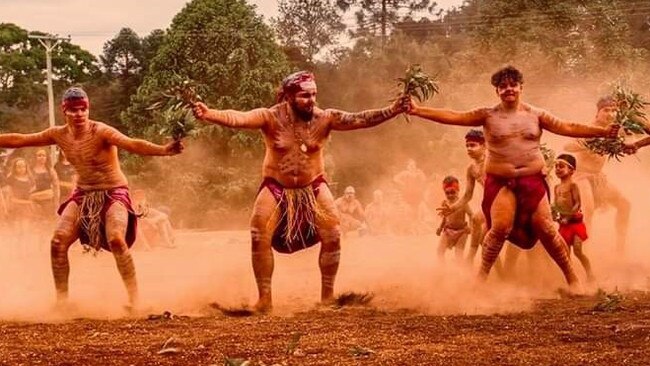
The young Indigenous man from Oakey recalls learning about his own heritage from his great grandmother.
She started opening up when he was the young age of five onwards.
“She was part of the stolen generation, and she never spoke about any of it because she was so traumatised and fearful and was told she wasn’t allowed to talk about it or the white man will come and take her away,” Mr Anderson said.
“When she was in her 60s and 70s, she started opening up to me about the history because I began getting involved in cultural activities and would show her my dancing or my art.”
Mr Anderson said his great grandmother had taught him about everything from Indigenous plants and food, to language before she passed away at the age of 94 – knowledge that he is now passionate about sharing with others.
“For me, I think of Australia Day as a day of teaching and education where we can show non-Indigenous people who don’t already know what happened to Aboriginal people during that time,” Mr Anderson said.
“It’s still a day for mourning for a lot of our people, so we do need to recognise what happened, but I personally don’t think we need to change the date because it doesn’t matter what date we change it to – every day throughout the year is a day of mourning, grieving and sadness for our people.
“Through the generations, a lot of families and ancestors would have passed away on one of those days from being tortured or murdered, so for me, the date doesn’t change that.”
Australia Day, which some Indigenous people refer to as Invasion Day, can be a challenging time for some as it harbours generations of distress and trauma for the traditional owners of this land.
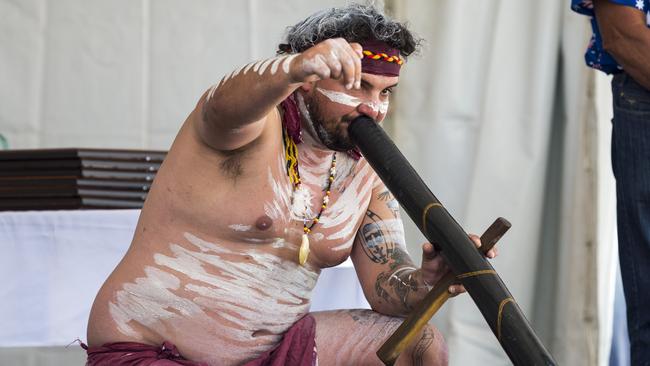
On January 26, 1788, Governor Arthur Phillip first raised the Great Britain flag at Sydney Cove following the arrival of the First Fleet at Port Jackson in NSW.
Decades of historical records show this moment led to the beginning of destruction of culture, separation of families and violent massacres for the stolen generation.
But Mr Anderson said rather than calling for a change in date, it was an opportunity for Indigenous people to get involved and educate others.
“The 26th of January brings a lot of people together because it’s all about uniting to celebrate Australia … I’m a proud Indigenous man, but I’m also proud to be alive and live on this beautiful country,” he said.
“We’ve got to live in unity – these days we have so many different nationalities living here, especially in Toowoomba, and a lot of the ancestors in those cultures were murdered too – it’s not just our culture.”
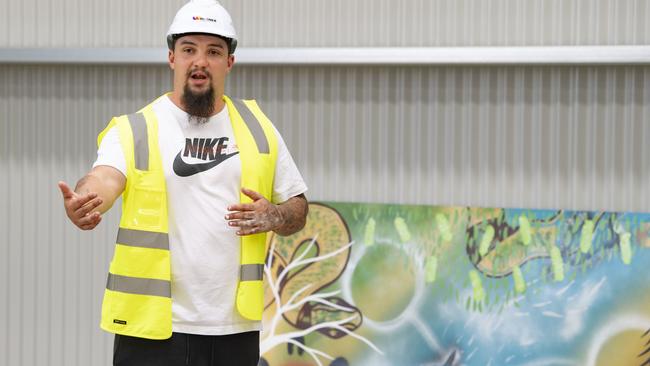
Mr Anderson said while he had experienced racism first-hand over the years, including from Indigenous people, he believed change had occurred with more education and cultural activities now provided in school curriculums and large events.
“There have been dramatic changes in getting more Aboriginal people involved,” he said.
“That’s why I believe, yes Australia Day is a day of mourning and we should mourn the lives lost in battle, while paying respect and celebrating what our ancestors left for us because they didn’t fight for nothing, but it’s also a day to celebrate this land and educate others.”
On Australia Day in 2020, Mr Anderson was the recipient of the Regional Aboriginal and Torres Strait Islander of the Year award. Today, Mr Anderson will be performing a dance at the Australia Day celebrations in Oakey.
A thriving artist, he also recently completed a large 24-panel mural at the new quarantine hub at Wellcamp Airport.
Titled Gabul Guridja Bonyedjaa, the mural represents several tribal groups which travelled through the Bunya Mountains decades ago, to share songs, stories and cultural information.
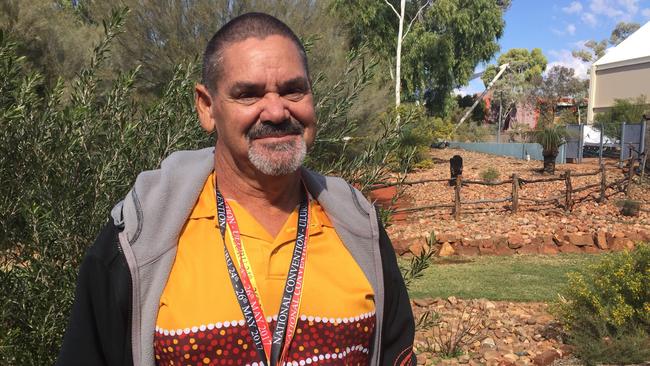
Fred Hooper
As a young child, Fred Hooper remembers standing with others on January 26, unaware of what the history of the date represented for First Nations People.
Serving in the Australian Navy for six years as an adult, it was part of his job to participate in ceremonies too, but now aged 60 years old, the proud Murrawarri man doesn’t recognise it as a day for his nation.
The former chairman of Toowoomba-based organisation Northern Basin Aboriginal Nations, who resigned from the role last year, said unless the real truth of this country was told, First Nations People could not celebrate it.
“My perspective is that the day is insulting to First Nations People around the country – there’s been a constant push across this country to change the date, and there are a lot of non-first nations people coming on board with that movement as well,” said Mr Hooper (pictured).
“We all know what happened after the First Fleet came, we all know there were massacres, destruction of land and country and the killing of people … how can we as First Nations People celebrate?”
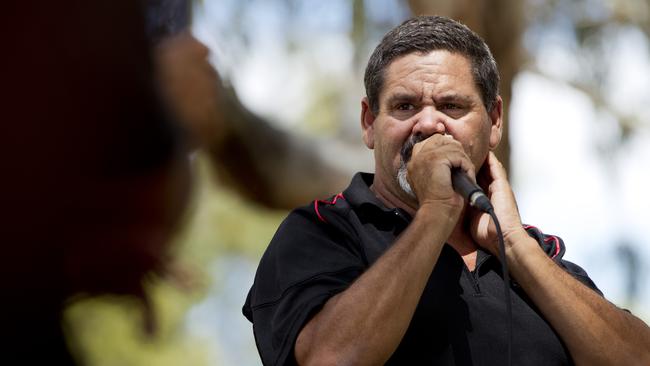
Mr Hooper said although the formal apology from former Prime Minister Kevin Rudd delivered in 2008 was a step in the right direction, the apology ultimately needed to come from Great Britain.
“I don’t blame the people of Australia because the people of Australia came out on convict ships – I don’t think the Australian people need to apologise for the invasion of this country,” he said.
“The person and family that Captain Cook represented when they say he came out and discovered this land should – the apology should come from the Crown.”
While Mr Hooper said he believed racism would always be a part of life – he recalled moments during his childhood when he and his family hopped on their school bus only for the other children to hold their noses in response.
“One day in 1971, one of my cousins hit a guy in the face for it, but we were all banned from the bus, not just him,” Mr Hooper said.
“In saying that, there’s a lot of people who come to your defence in those moments too … people called me a black b*****d many times when I was in the navy and my non-Indigenous friends wouldn’t stand for it.”
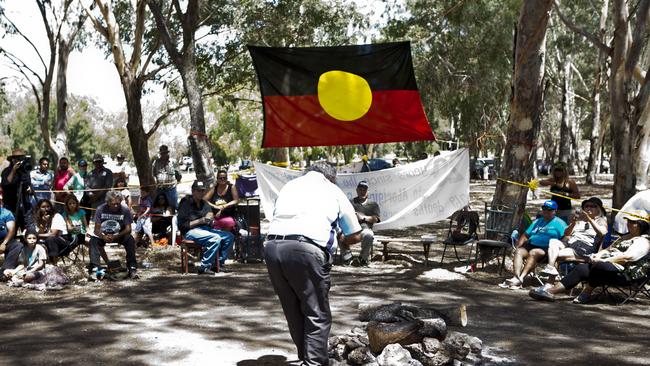
After growing up and understanding what January 26 represented for so many Indigenous people, Mr Hooper said he chose to celebrate his country on Anzac Day instead.
He said he also paid respect each year to the four Indigenous men who set up a beach umbrella on the lawns of the old Parliament House in Canberra to protest against the government’s approach to Indigenous land rights.
Those protests were held on January 26, in 1972.
“I celebrate the fact that I’m here, and what those four young and courageous people did at Parliament House in 1972,” he said.
“To me the only part of this country that I can really say spiritually and emotionally means anything to me is my own country.
“When I go back on my country, I take off my shoes, I put my feet on Mother Earth and the energy of Mother Earth comes back up through my legs and into my body.”
Mr Hooper is now the current chairman for the Murrawarri People’s Council.
More Coverage
Originally published as ‘Day of mourning’: First Nations men share views on changing the date




